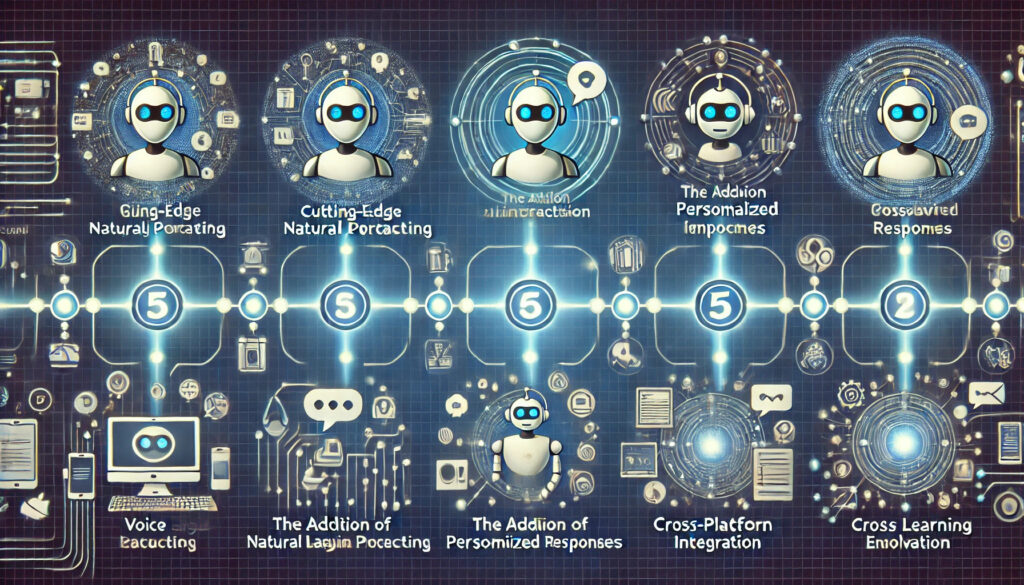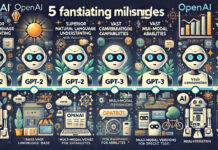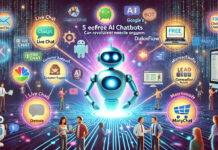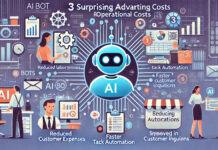The Need for Advanced AI Chatbots
In the era of rapid digital transformation, AI chatbots have become essential tools for businesses aiming to automate customer interactions, streamline operations, and enhance user engagement. The Gemini Chatbot stands out as one of the cutting-edge AI-powered assistants developed to address these needs. As a sophisticated conversational agent, Gemini Chatbot blends natural language processing (NLP) and machine learning to provide human-like responses, making it a valuable asset for companies seeking innovative solutions.

The demand for AI-driven chatbots stems from the limitations of traditional customer service models. While live agents are still critical, chatbots can handle a large volume of inquiries simultaneously, provide 24/7 availability, and reduce operational costs. Gemini Chatbot has been designed to tackle these challenges and offer seamless, context-aware interactions, allowing businesses to boost their productivity and enhance user satisfaction. In this article, we will explore the major milestones in the development of Gemini Chatbot, its strengths, and how it compares to leading competitors like Google’s Dialogflow and OpenAI’s ChatGPT.
Historical Background of AI Chatbots
Early chatbots: ELIZA and ALICE
The concept of conversational agents can be traced back to early chatbot models like ELIZA and ALICE. ELIZA, created in 1966 by Joseph Weizenbaum, was one of the earliest AI programs designed to simulate conversations with users. It operated based on pattern matching and scripts, but lacked true understanding or intelligence. While ELIZA could simulate human conversation, it did not comprehend the meaning behind the words.
ALICE, developed by Richard Wallace in 1995, was an improvement over ELIZA, utilizing AIML (Artificial Intelligence Markup Language) to engage in more sophisticated dialogues. However, ALICE was still a rule-based chatbot, relying on pre-programmed responses rather than learning from interactions. These early chatbots paved the way for modern AI-driven solutions like Gemini Chatbot, which goes beyond pattern matching and uses machine learning to understand and respond to user queries more intelligently.
Rise of NLP and machine learning
The rise of Natural Language Processing (NLP) in the mid-2010s revolutionized the field of conversational AI. NLP enabled chatbots to understand the nuances of human language, including context, tone, and intent. This development allowed for the creation of more interactive and user-friendly chatbots. At the same time, machine learning became an integral part of chatbot development, as it allowed bots to learn from past interactions and improve their accuracy over time.
This convergence of NLP and machine learning technology laid the foundation for the development of more advanced chatbots like Gemini Chatbot. These chatbots are not only capable of answering queries but can also analyze user behavior, personalize interactions, and adapt their responses based on historical data.
Evolution from simple bots to intelligent agents
As rule-based systems reached their limits, AI developers began focusing on creating chatbots that could learn, understand, and generate natural language responses. These intelligent agents were no longer restricted to predefined scripts but could engage in more flexible, context-aware conversations. Companies across industries began deploying these AI chatbots to handle customer service, sales, and support tasks, leading to the next evolution of chatbot technology.
Gemini Chatbot represents a leap forward in this evolution, utilizing state-of-the-art AI models to provide human-like responses that feel natural and engaging. By combining advanced NLP techniques with deep learning, Gemini Chatbot is able to hold multi-turn conversations, adapt to new information, and improve its performance through machine learning algorithms.
The Birth of Gemini Chatbot
Origins of the Gemini Chatbot project
The development of Gemini Chatbot began as part of a broader initiative to create a conversational agent that could deliver personalized user experiences while maintaining scalability. Gemini Chatbot was conceived by a team of AI experts and engineers who aimed to push the boundaries of conversational AI technology. Drawing from years of research in NLP, deep learning, and AI ethics, the team behind Gemini sought to create a chatbot that could seamlessly integrate with businesses of all sizes.
From its inception, the Gemini project focused on building an AI assistant that could handle complex tasks, manage diverse user interactions, and deliver superior customer service solutions. It was built on the principles of user-centric design, ensuring that the chatbot would not only be intelligent but also easy to use, adaptable, and responsive to different industry needs.
Initial development and early versions
The first iterations of Gemini Chatbot were focused on refining its core functionalities, such as language understanding, context retention, and error handling. Early versions of the chatbot were designed for customer service use cases, allowing businesses to automate routine inquiries and reduce the burden on human agents. As more data was collected, the chatbot was continually improved, with machine learning models allowing it to better understand user intent and provide more accurate responses.
The early success of Gemini Chatbot can be attributed to its strong integration with data analytics tools, allowing businesses to track user behavior, identify common questions, and refine the chatbot’s responses accordingly. This feedback loop helped Gemini Chatbot become one of the most reliable and adaptive AI chatbots on the market.
Public release and business adoption
After several rounds of beta testing, Gemini Chatbot was released to the public, where it quickly gained traction in industries like e-commerce, financial services, and healthcare. Businesses appreciated the chatbot’s ability to handle complex queries while maintaining a friendly and engaging tone. The public release marked a significant milestone for the Gemini Chatbot project, as it demonstrated the bot’s capability to operate at scale, handling thousands of simultaneous interactions without a drop in performance.
By automating repetitive tasks such as FAQ responses, order tracking, and appointment scheduling, Gemini Chatbot allowed businesses to cut down on operational costs while improving customer satisfaction. Its cross-platform compatibility made it easy for businesses to integrate the chatbot into their websites, mobile apps, and social media channels.
Advanced Features and Customization
Advanced language models for better interaction
One of the standout features of the Gemini Chatbot is its use of advanced language models. By incorporating state-of-the-art transformer architectures, similar to those used by OpenAI and Google, Gemini Chatbot is capable of understanding complex queries and providing accurate responses. Unlike earlier chatbots that struggled with maintaining context, Gemini excels in multi-turn conversations, offering users a more natural and satisfying experience.
Gemini Chatbot’s use of contextual awareness allows it to respond more intelligently, taking into account the user’s previous inputs and adapting its responses accordingly. This makes the chatbot particularly effective for tasks that require ongoing dialogue, such as technical support or product recommendations.
Customization options for businesses
A key strength of Gemini Chatbot lies in its customization capabilities. Unlike many other chatbots that offer limited templates, Gemini allows businesses to tailor the bot’s responses, workflows, and integrations to suit their specific needs. Whether it’s creating custom scripts for a retail website or setting up automated workflows for a healthcare provider, Gemini Chatbot provides the flexibility needed to handle diverse business requirements.
In addition, Gemini Chatbot can integrate with various third-party platforms like CRM systems, helpdesk software, and e-commerce tools, making it a versatile solution for businesses that want to automate more than just customer support.
Personalization and context retention
Gemini Chatbot’s ability to retain context is one of its most praised features. By remembering user preferences, purchase history, and past interactions, the chatbot can provide a more personalized experience. For example, when a user asks for product recommendations, Gemini can suggest items based on the user’s previous purchases or stated preferences, offering a truly personalized shopping experience.
This level of personalization extends to customer service as well. When a user engages with Gemini Chatbot over multiple interactions, the bot can remember previous conversations, making it easier to resolve issues without needing to repeat information.
Competitive Landscape
Competitors: Google Dialogflow, OpenAI ChatGPT, IBM Watson
In the competitive world of AI chatbots, Gemini Chatbot faces stiff competition from industry giants like Google Dialogflow, OpenAI ChatGPT, and IBM Watson. Each of these platforms offers unique advantages, but Gemini Chatbot differentiates itself by offering a highly customizable, user-friendly interface that appeals to businesses of all sizes.
Google Dialogflow is known for its robust natural language understanding capabilities, especially in the area of voice interactions. It is widely used for building chatbots that integrate with Google Assistant and other voice-activated systems. However, Dialogflow’s steep learning curve can be a drawback for businesses without a dedicated development team.
OpenAI’s ChatGPT stands out for its ability to generate highly creative, context-aware responses, but it requires substantial computational power and may not be as business-focused as Gemini Chatbot. IBM Watson, on the other hand, excels in enterprise-level integrations and data analytics, but its complexity can be overwhelming for smaller businesses.
Comparison of Gemini Chatbot with other AI solutions
When comparing Gemini Chatbot to these competitors, several advantages stand out. Gemini offers more flexibility in terms of customization, allowing businesses to tailor the chatbot’s behavior, language, and tone to suit their brand. Additionally, its integration with a wide range of platforms ensures that it can fit into virtually any business model.
While Google Dialogflow may have an edge in voice search, Gemini’s text-based interactions are more conversational and intuitive. Similarly, while IBM Watson is a powerful tool for large enterprises, Gemini Chatbot is more accessible for small to medium-sized businesses, offering a simpler, more scalable solution.
Strengths that give Gemini an edge
One of the key strengths of Gemini Chatbot is its focus on providing engaging, human-like conversations. With its advanced NLP models, Gemini is better equipped to handle nuanced language, offering more relevant and personalized responses than many of its competitors. Additionally, Gemini’s ability to learn from user behavior ensures that the chatbot becomes more effective over time, adapting to the needs and preferences of its users.
Another strength lies in Gemini Chatbot’s ease of integration. The platform supports a wide range of integrations with CRM systems, e-commerce platforms, and helpdesk tools, making it a versatile solution for businesses across industries. This flexibility, combined with its user-friendly interface, makes Gemini an attractive option for companies looking to deploy a chatbot without a steep learning curve.
The Future of Gemini Chatbot
Future AI advancements and feature updates
The future of Gemini Chatbot is promising, with continuous improvements planned in areas such as multi-language support, emotion recognition, and voice interaction. As AI continues to evolve, Gemini will integrate more sophisticated features that allow businesses to offer even more personalized and empathetic customer interactions.
Upcoming updates will also focus on improving the chatbot’s ability to handle more complex tasks, such as data analysis, inventory management, and even content creation. This expanded functionality will make Gemini Chatbot a more integral part of business operations, further solidifying its place in the competitive AI chatbot landscape.
Ethical considerations and challenges
While Gemini Chatbot offers a range of benefits, the development of AI-powered chatbots also brings with it ethical challenges. Ensuring that the chatbot does not produce biased or harmful content is a top priority for the developers behind Gemini. Additionally, maintaining transparency in how data is collected and used is essential for building trust with users.
To address these concerns, Gemini is designed with ethical AI principles in mind, including transparency, fairness, and data privacy. The platform includes safeguards to ensure that the chatbot behaves in a manner consistent with ethical standards, minimizing the risk of generating inappropriate responses or violating user privacy.
How Gemini Chatbot is Shaping the Future of AI-Powered Conversations
The Gemini Chatbot is a powerful and flexible tool that has made significant strides in the field of conversational AI. With its advanced NLP capabilities, context retention, and customization features, Gemini offers businesses a unique solution for automating customer interactions while maintaining a personal touch.
By focusing on delivering more natural, engaging conversations, Gemini Chatbot stands out in a competitive landscape filled with solutions like Dialogflow and OpenAI’s ChatGPT. As it continues to evolve, Gemini will play a pivotal role in shaping the future of AI-powered customer service, providing businesses with the tools they need to engage their users more effectively and efficiently.



